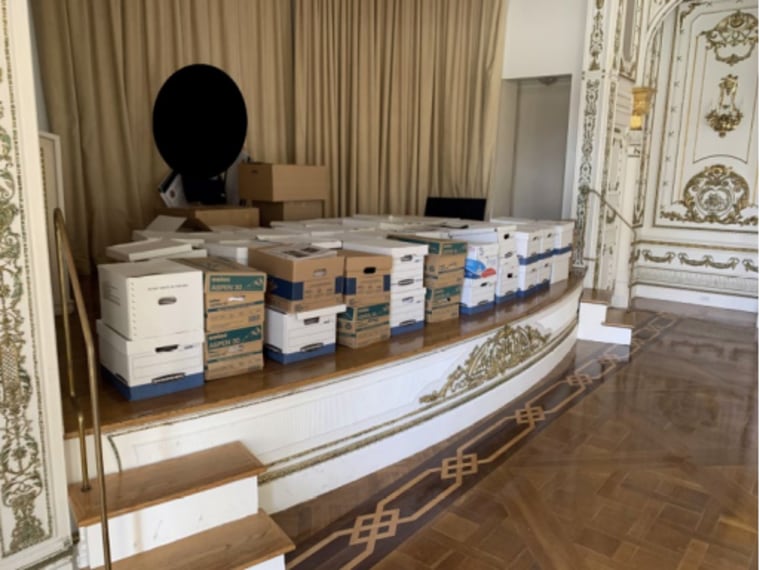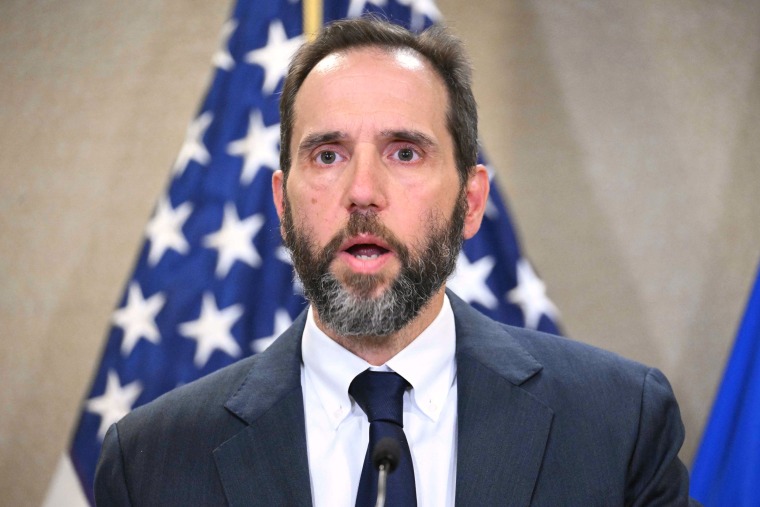The federal indictment of Donald Trump, unsealed on Friday, was filled with startling new accounts of how the former president allegedly mishandled classified information. But the revelation of who would oversee the case could present unique challenges for the Justice Department.
Aileen Cannon, a former prosecutor in her early 40s who has spent two and a half years on the bench, is the same Trump appointee who repeatedly ruled in his favor in a related case. She will now oversee a trial that experts believe could influence the American public’s trust in the fairness of the court system for years to come. Cannon will guide how quickly the case goes to trial, oversee the selection of jurors and determine what evidence can be presented to the jury.
Stephen Gillers, a professor of legal ethics at New York University School of Law, predicted that the trial would be fair. But he said the former president’s claims that he is being selectively prosecuted, and politically persecuted could undermine public trust in the nonpartisanship of the courts, the Justice Department and the FBI.
“This will be the most consequential and most watched prosecution in American history,” Gillers said. “Will enough of the public believe it, whatever the verdict? Or will they see any result as political? Answers to those questions are as important as the verdict.”
Trump, who has launched another bid for the White House, has cast the government’s case against him as the latest in a long run of politically motivated “witch hunts,” arguing without evidence that President Joe Biden was trying to force him out of the 2024 race.
On Saturday, in Trump’s first public remarks since the case against him was unsealed on Friday, the former President called it a “ridiculous and baseless indictment of me by the Biden administration’s weaponized ‘Department of Injustice.’”
A significant issue before the case even reaches trial is how, and how quickly, Cannon resolves pretrial motions. Chief among those are expected filings by the Trump defense team to exclude any evidence from his defense lawyer at the time, Evan Corcoran.
The indictment makes clear that prosecutors have relied on contemporaneous notes that Corcoran took of his interactions with Trump, including his client’s resistance to turning over classified documents. At one point, according to Corcoran’s recounting, Trump made a “plucking” motion that seemed to indicate Corcoran should simply pull out the classified material from a batch that the lawyer planned to return to the government.
In March, a federal judge in Washington, Beryl A. Howell, granted a request from prosecutors to apply the “crime fraud exception” to Corcoran’s conversations with Trump. The ruling, which is rare, meant that the bedrock legal principle, that attorney-client communications stay secret, did not apply because Justice Department lawyers showed that legal services had been used in furtherance of a crime.
Trump’s lawyers have sharply criticized Howell’s ruling and will likely ask Cannon to block prosecutors from presenting evidence from Corcoran to the trial jury. If Cannon agrees that the jury should not hear all of the Corcoran evidence, the Justice Department’s case won’t be over, but it will be critically hobbled.
How, and how quickly, Cannon rules regarding the use of the classified documents at the center of the prosecution’s case will also have an impact. Trump’s lawyers will likely use delay — a tactic that the former president has embraced for decades in legal battles — to their advantage.

Brandon Van Grack, a former Justice Department national security prosecutor and a lead prosecutor in the Mueller investigation, noted that the use of classified documents involves a separate discovery and litigation process, under the Classified Information Processing Act, or CIPA.
“They will create significant delay and litigation risk,” he wrote on Twitter, adding that most judges do not have experience with the process. “This process takes time and will be unfamiliar to the judge.”
Some legal experts have argued that Trump could have an ally in Cannon, based on her past rulings in the classified documents case.
Cannon, who was born in Colombia and grew up in Miami, attended Duke University and graduated magna cum laude from the University of Michigan Law School. She then worked as a clerk for a federal appeals court judge in Iowa and in the Washington office of the elite law firm Gibson, Dunn & Crutcher.
In 2013, Cannon left the firm, returned to Florida and embarked on a job that could significantly affect her handling of the Trump case. For seven years, Cannon worked as a federal prosecutor in the Southern District of Florida, in the major crimes and appellate divisions.
In the spring of 2020, Trump nominated Cannon to the federal bench with the backing of Sen. Marco Rubio, R-Fla. During a confirmation hearing, Cannon pledged to uphold the rule of law and lauded her mother’s courage in fleeing repression in Cuba. Days after the election in November, the Senate confirmed Cannon along largely bipartisan lines. Initially, Cannon rulings attracted relatively little public attention.
That changed after FBI agents searched Trump’s Mar-a-Lago residence in August 2022 for classified documents. Cannon was randomly assigned to oversee the subsequent legal battle that unfolded between Trump’s legal team and the Justice Department.
In the first case, Cannon ruled in favor of Trump’s request to appoint a “special master” — a third-party attorney — to review whether the documents that the Justice Department and FBI had found in Trump’s home were protected by executive privilege, a contention that many legal experts dismissed.
She also temporarily blocked parts of the Justice Department’s investigation into the trove of top secret and classified documents retrieved by federal agents, while putting forth legal arguments that Trump’s team hadn’t made, among them that the former president could suffer “injury” to his reputation if the Justice Department indicted him. (Cannon did not respond to a request for comment.)
Justice Department lawyers appealed, arguing that the Trump request was simply an effort to delay their work and that executive privilege did not apply in this case. A federal appeals court, with several of its judges appointed by Trump, sided with the Justice Department, and twice overturned Cannon.
“To create a special exception here would defy our Nation’s foundational principle that our law applies ‘to all, without regard to numbers, wealth, or rank,’” the judges wrote in one ruling.
The impact of those rulings on Cannon is unclear. They could prompt her to be more cautious in the Trump trial. Any judge overseeing such an unprecedented, high-stakes trial will also come under enormous scrutiny. Whether Trump is found guilty or acquitted, the trial — and how it is perceived by the public — will likely define Cannon’s career and judicial legacy.
Ryan Goodman, a professor at New York University School of Law, said that if Cannon issues rulings that appear to favor Trump it could decrease public trust in the fairness of judges. “The problem is that she has demonstrated such bias in her prior rulings,” Goodman said. “Does her holding the case create damage to public confidence in the courts?”

Many Trump supporters have made it clear that criminal allegations against Trump will not diminish their support. After the former president was indicted in March by a grand jury in Manhattan in a separate case, support for him among Republican voters increased.
“I’d vote for him from jail,” Vince Condra of Fredericksburg, Texas, told NBC News at a Trump rally in Waco, days after that indictment.
Meanwhile, questions about how Cannon was assigned, at random, to the Trump trial remain. Federal courts across the country randomly assign cases to judges but some legal experts question how Cannon was randomly chosen twice to oversee Trump cases.
In response to a question, Angela Noble, the chief clerk of the South Florida federal court system, told NBC News that the “the case was randomly assigned.” The New York Times reported that Cannon was chosen at random from about a half dozen federal judges in the West Palm Beach division, where the Trump trial will take place. Noble also told the the paper that Cannon will continue to oversee the case unless she recuses herself.
Gillers, the NYU legal ethics expert, called for the chief judge in the Southern District of Florida to review how the case was assigned. “It may be innocent,” Gillers said. “And the clerk’s assurance is welcome. But the public needs confirmation from the chief judge, who is ultimately responsible for case assignments.”
The stakes of the Trump trial are enormous. The American judicial system has long been criticized for racial, gender and class bias but the first-ever criminal trial of a former president could deepen public doubts and partisan divisions.
Gillers said that the trial would serve as an unprecedented, nationwide civics lesson. He declined to predict what verdict the jury will reach inside the courtroom and what verdict the public will reach outside it. The trial of the former president could affirm the ideal that the powerful, like all Americans, should be held accountable for their actions, experts said. Or it could cause large numbers of Americans to lose faith in the courts, politics and, potentially, American democracy itself.
“Much will depend on how the prosecutors and judges conduct themselves. They must view their role as including education, in language the public will understand,” Gillers said. “Eventually, a trial jury may reach a verdict, but the public verdict remains unpredictable.”






